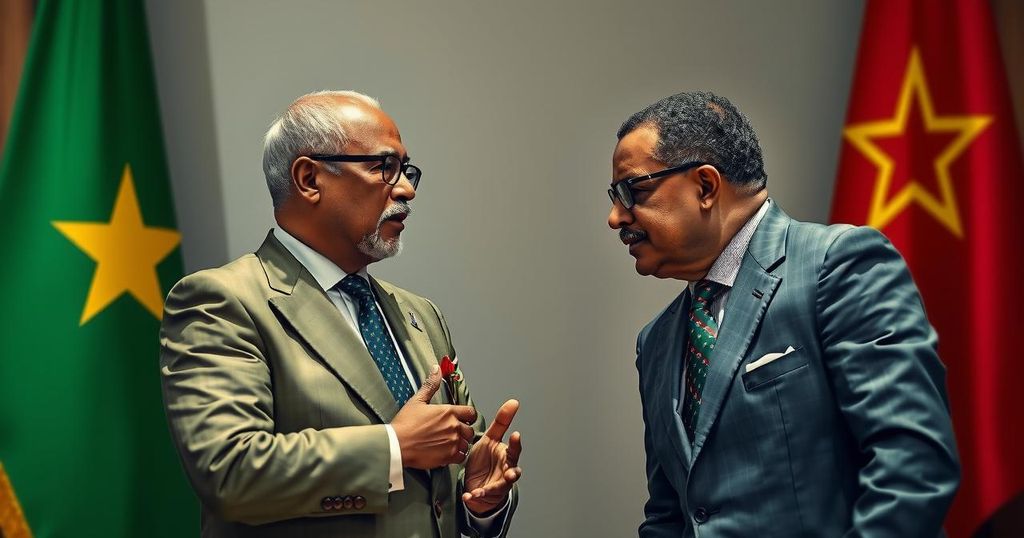Somalia’s President Hassan Sheikh Mohamud has condemned Ethiopia’s continued interest in annexing Somali territory, describing it as an ‘obsession’. He insists that Ethiopia’s ambitions violate international law and expresses confidence that recent defense agreements with Egypt and Turkey will counter these encroachments. Prime Minister Abiy Ahmed of Ethiopia has reiterated his country’s desire for peaceful access to the Red Sea, clarifying that the agreement with Somaliland is not intended to claim Somali land.
In a recent address to the Somali parliament, President Hassan Sheikh Mohamud criticized Ethiopia for its ongoing desire to annex Somali land, referring to it as an ‘obsession’. The President articulated that Ethiopia has historically encroached on Somali territory, a trend that he asserts continues in violation of international law. Although he did not specify the exact areas Ethiopia seeks to annex, President Mohamud emphasized that Ethiopia’s actions have been a long-standing issue since colonial times. President Mohamud further remarked that Somalia’s recent defense agreements with Egypt and Turkey are strategic moves to counteract Ethiopian aspirations in the region, reinforcing that these pacts will not destabilize the Horn of Africa. This follows Ethiopia’s agreement with Somaliland, which allows Ethiopia access to the Red Sea, a deal that President Mohamud vehemently argues undermines Somali sovereignty. He stated, “Ethiopia occupies Somali land from colonial times and aims to take more now.” Amid the tensions, President Mohamud insisted that the defeat of the militant group Al-Shabaab did not rely on the presence of Ethiopian troops, which operate under the African Union Transition Mission in Somalia (ATMIS). He contended that sufficient progress against Al-Shabaab had already been made without Ethiopian military support, stating, “We have liberated many parts of our country from Khawaarij without Ethiopia; they did not fire one shell a day.” In response, Ethiopian Prime Minister Abiy Ahmed assured legislators that Ethiopia seeks to secure access to the Red Sea through peaceful negotiations, distancing the nation from aggressive annexation strategies. He clarified that the agreement with Somaliland did not entail the appropriation of Somali territory but was structured as a lease for sea access rather than a territorial claim.
The longstanding tensions between Somalia and Ethiopia over territorial disputes date back to colonial times. Ethiopia has previously annexed portions of Somali land, which have remained points of contention. The recent agreements involving Ethiopia and Somaliland to grant Ethiopian access to the Red Sea have heightened these tensions, as the areas involved are considered part of Somali territory. The Somali government has expressed concern over national sovereignty and regional stability, particularly regarding the counterterrorism efforts against Al-Shabaab. Ethiopia’s military presence in Somalia, as part of the African Union’s initiatives, has also been controversial, with calls for a reevaluation of their role in the ongoing conflict.
In sum, the relationship between Somalia and Ethiopia remains fraught with historical grievances and contemporary disputes over territory. President Mohamud’s remarks underscore Somalia’s intent to safeguard its sovereignty from perceived Ethiopian expansionism, while Prime Minister Abiy Ahmed’s statements reflect Ethiopia’s commitment to negotiating access to the Red Sea through peaceful means. The future dynamics in the Horn of Africa will likely depend on diplomatic negotiations and military involvement as both nations navigate their respective ambitions and security concerns.
Original Source: www.garoweonline.com






